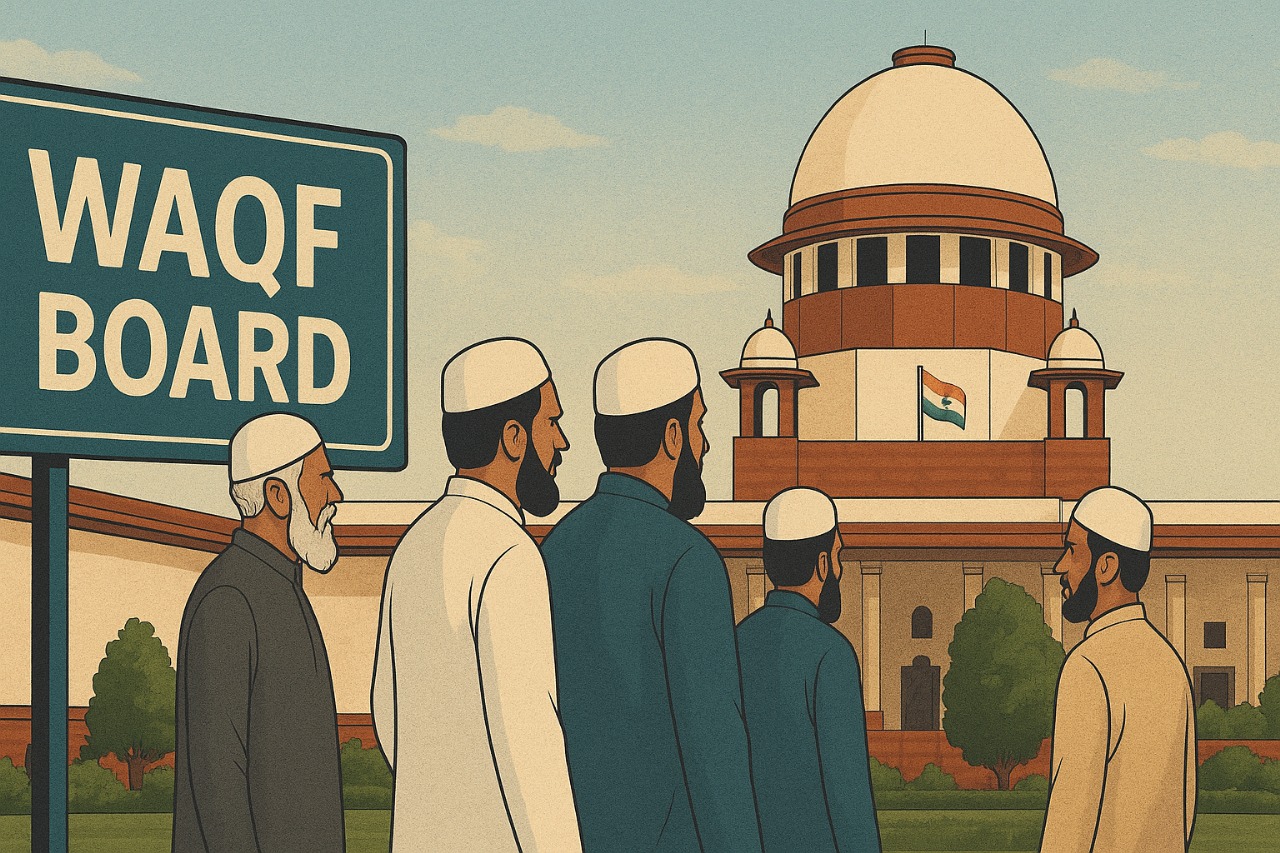In a landmark ruling, the Supreme Court of India has put to rest a long-standing property dispute in Delhi’s Shahdara region, siding with a Gurdwara over the Delhi Waqf Board in a case involving claims to religious land dating back several decades.
Background
A 1,000-square-yard plot of land in Delhi’s Shahdara neighborhood, where a Gurdwara has stood for many years, has been the subject of a protracted dispute. The Delhi Waqf Board asserted that the land was originally theirs and that it was intended for Muslim religious or charitable purposes, even though the Sikh community still used it for worship.
The Gurdwara committee, on the other hand, insisted that the property had always belonged to the Sikh community and that the Waqf Board had no rightful ownership over it.
Supreme Court Opinion
The bench, comprising Justices Vikram Nath and Sandeep Mehta, ruled firmly in favour of the Gurdwara. They observed that the Delhi Waqf Board could not provide adequate evidence to prove its ownership or continuous possession of the land.
“The Waqf Board did not file any suit for possession nor could they prove continuous ownership of the land. Mere registration under the Waqf Act does not amount to legal ownership,” the Court stated.
This means that simply listing a property as part of Waqf records is not enough. One must prove actual, lawful possession and ownership — especially in cases where the land has been used by another religious community for decades.
More Than Just a Plot
There is more to this than a simple land dispute. It highlights a bigger issue: competing religious claims can lead to legal disputes in India’s diverse and complex spiritual landscape. In this instance, the Court intervened to prevent the misuse of Waqf records in order to ignore local realities.
According to legal experts, this decision might establish a precedent for similar cases involving properties that religious boards have claimed but do not actually own or have a clear title to.
A Quiet Possession Case
The Court pointed out that the Gurdwara had been in “peaceful possession” of the land for many years, which was an important point. The Sikhs maintained the property, worshipped there, and had a long-standing, noticeable presence.
The Waqf Board, on the other hand, had not made any attempts to reclaim the land through the courts over the years and had only claimed ownership on paper.
“Possession without legal challenge for decades carries weight in property disputes,” the bench added.
The Legal Loophole Closed
The Delhi Waqf Board had earlier approached the Delhi High Court, which had ruled against them. Their last resort was an appeal to the Supreme Court, which now upheld the High Court’s decision. With this, the Gurdwara’s claim to the land is validated and all legal options have been explored.
AUTHOR
Pragya Jakhar is a second-year Lovely Professional University student pursuing a B.A. LL.B. (Hons.). Human rights and constitutional law particularly interest her. Pragya likes to write about legal subjects and is committed to improving and making the legal system more accessible to all.
Throughout the years, she has written numerous articles that examine important legal issues, and her growing comprehension of the operation of the law, both in books and in practice, allows her to contribute perceptive opinions to academic and policy discussions. She enjoys keeping up with news and significant court decisions.

